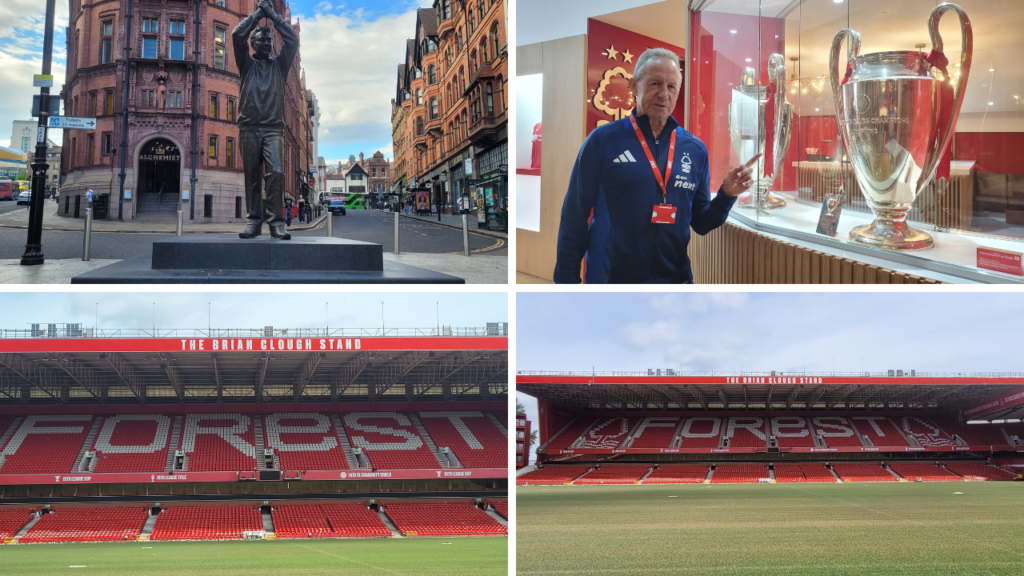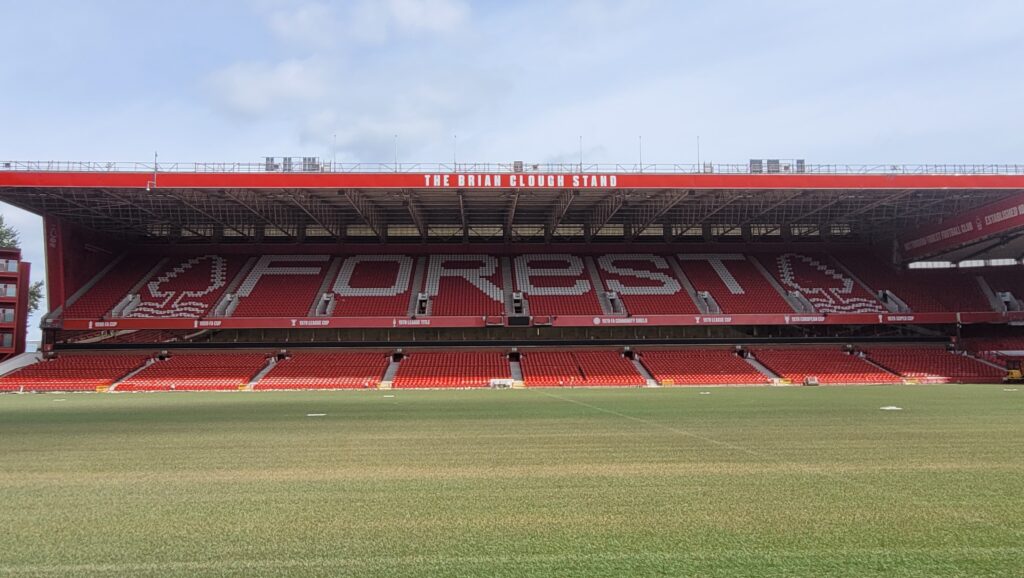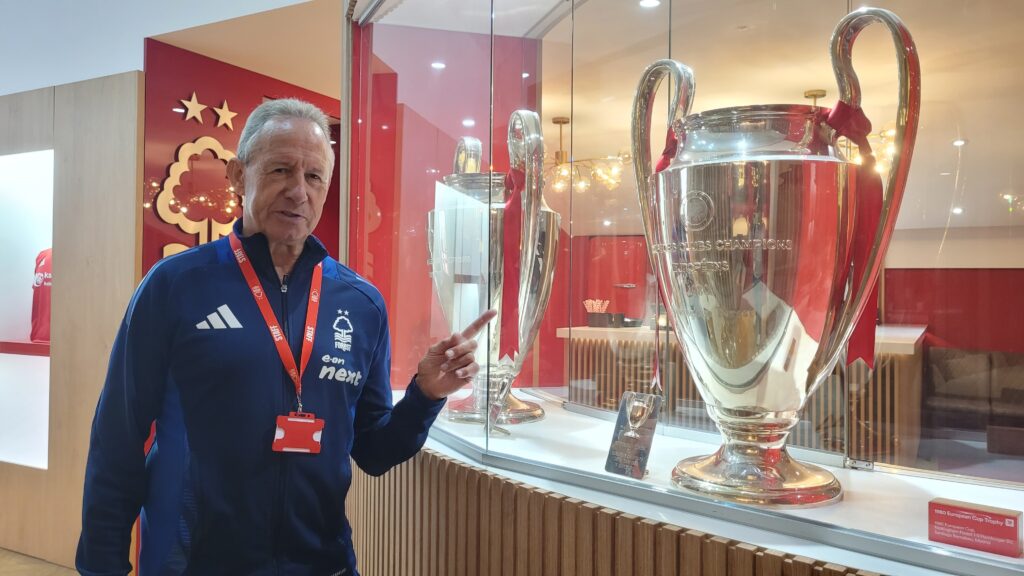
Images: Debasis Sen.
Debasis Sen in Nottingham
On most cricket tours, it’s rare for a reporter to find time for non-cricket stories. But on Friday, I had the opportunity to travel to Nottingham from Birmingham and explore a piece of football history — a visit to Premier League club Nottingham Forest. The trip wasn’t just about visiting a club once made famous by the legendary Brian Clough; it was about experiencing a place where English football history was made.
The main purpose of the day was to cover the Indian women’s cricket team’s practice session at the iconic Trent Bridge ground, ahead of their five-match T20I series opener. My colleague, Trisha Ghosal, opted to cover the England women’s team training session in the morning. That gave me a chance to cross the street from Trent Bridge and step into the home of Nottingham Forest — a club steeped in legacy and football folklore.

Founded in 1865, Nottingham Forest is one of English football’s oldest clubs. Their golden era came under the stewardship of Brian Clough, who transformed them from a struggling second-division side into back-to-back European champions. Clough joined Forest in 1975 and stayed for 18 years, a tenure that remains the most successful in the club’s history.
Under Clough, Forest achieved feats that seem almost mythical in today’s footballing landscape dominated by financial giants. They won the English First Division (now Premier League), two European Cups in 1979 and 1980, the 1978 European Super Cup, four League Cups (1978, 1979, 1989, 1990), and the Charity Shield. He gave the club an identity rooted in grit, resilience, and an underdog spirit that still defines it today.
Clough’s influence is felt even decades after his departure. Fans continue to draw inspiration from his achievements, and his memory lives on through a statue in Nottingham city centre, unveiled in 2008 by his widow Barbara. His 18-year reign wasn’t just about silverware—it was about vision, values, and belief in the improbable.
John McGovern, who captained Nottingham Forest to two European titles under Clough, in an interview to RevSportz, said, “I think Clough understood people. His forte was his man management. When it came to signing players, he would leave that totally to Peter Taylor to take care of. So, you got Peter Taylor who was brilliant at signing players with real ability, and Clough, who then took over as man-manager, which was his forte. He was a strict disciplinarian like my mother.”

Forest are now coached by Nuno Espírito Santo, who guided the club to a seventh-place finish and qualification for the Conference League, marking their first participation in European football in 30 years. On June 21, 2025, Nuno signed a new contract to stay with the club until 2028.
In debates about football’s greatest managers, names like Sir Alex Ferguson and Pep Guardiola are often mentioned. But winning with Manchester United, Barcelona or Manchester City is one thing. What Clough did — winning the English top-flight with Derby County and Nottingham Forest, and lifting two European Cups with the latter — was truly remarkable.
Clough’s battle with alcoholism led to a premature end to his career and life; he passed away at 69. As a player, he was a prolific striker for Middlesbrough and Sunderland. Yet, he’s best remembered as the greatest manager England never had — a man who stood for attractive football, integrity, and belief. His legacy at Nottingham Forest and in English football is nothing short of legendary.
For More Such Stories Follow RevSportz



